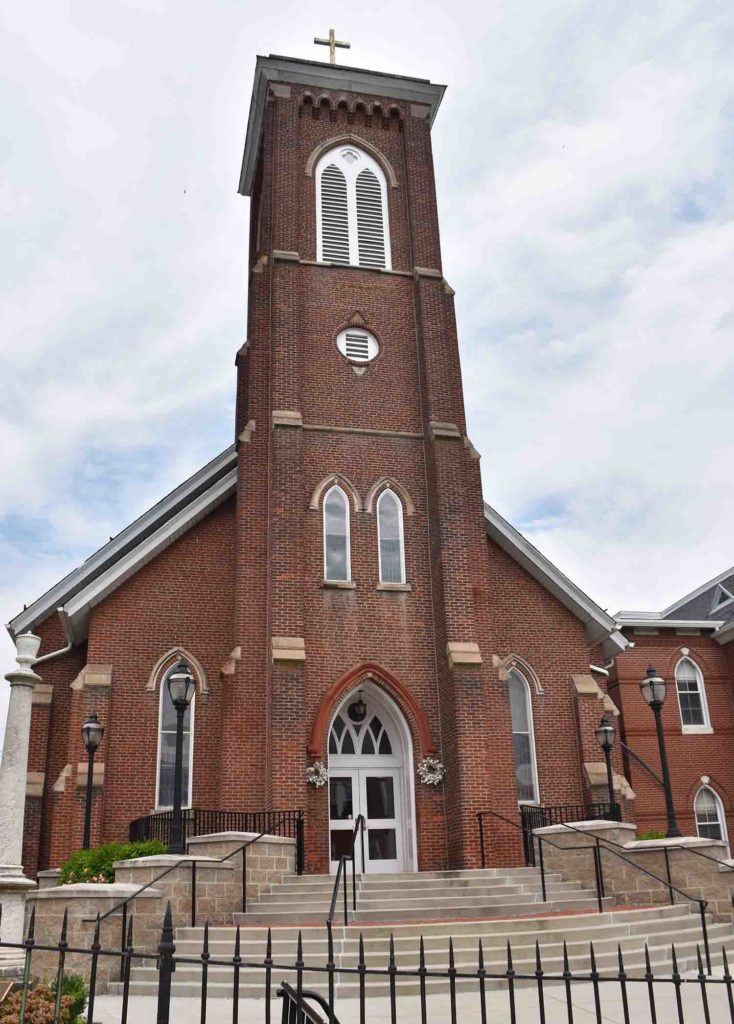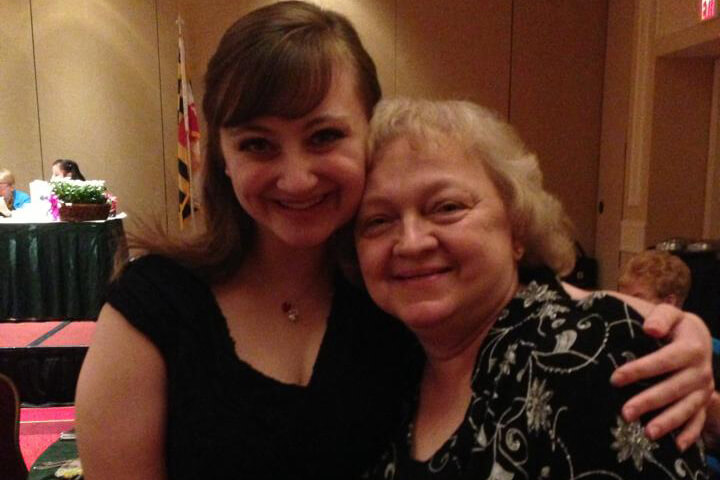
As I pulled up in front, I was hit with an overwhelming sense of familiarity – it was not the first time I had visited the brick church situated in the heart of the Western Maryland town.
At the end of my freshman year at Stevenson University, my mom drove with me to St. Michael to pay my final respects to Joyce Race, a woman who was near and dear to my heart. I had known her for nearly a decade. We were both members of an organization that sponsored volunteer groups in our respective hometowns, and originally met through regional events.
Her charitable acts rivaled her endearing personality as her best quality. She was the type of woman who would drive nearly three hours to my high school graduation party bearing a box filled with school supplies, enough to see me through my college graduation. In case that gift was not personal enough, she had a crystal box engraved with my name sent to my house the following week.
The memories of Ms. Joyce’s funeral are fuzzy, masked by the drowsiness of an early morning and the emotions of mourning. One part, however, remains clear.
At the point where a family member might offer a eulogy, a man – I do not know who, as I was unfamiliar with her family – went to the ambo and began reading from Proverbs 31:
“Who can find a woman of worth? Far beyond jewels is her value. … She rises while it is still night, and distributes food to her household, a portion to her maidservants. She picks out a field and acquires it; from her earnings she plants a vineyard. … She reaches out her hands to the poor, and extends her arms to the needy. … She is clothed with strength and dignity, and laughs at the days to come. She opens her mouth in wisdom; kindly instruction is on her tongue. … Her children rise up and call her blessed; her husband, too, praises her: ‘Many are the women of proven worth, but you have excelled them all.’ Charm is deceptive and beauty fleeting; the woman who fears the LORD is to be praised.”
The words described a woman we knew and loved, and they were more powerful than a handcrafted eulogy. There was not a dry eye in the congregation as he concluded:
“Acclaim her for the work of her hands, and let her deeds praise her at the city gates.”
He walked away from the altar and sat down. No further eulogy was provided; no further eulogy was needed.
On that work trip in July, I made three stops at Frostburg Memorial Park to search for Ms. Joyce’s grave. No employees were present on the quiet weekend, and I searched desperately for her grave among hundreds of others, working only from a feeling of what seemed familiar from four years prior.
At one point, I said, “Come on Ms. Joyce, speak to me!” I turned a corner to a headstone marked “RACE,” only to find the wrong given names beneath. I was disheartened that I was unable to leave her flowers, but I think she was giving me a lesson in not obsessing over trivial matters.
As a young adult Catholic, I aspire to emulate Ms. Joyce’s behavior, and become a Proverbs 31 woman. And so from that Old Testament chapter, I found “The Work of Her Hands,” the title for my blog, this being the introductory installment.
I consider my work as a writer for the Catholic Review a ministry, one that will inevitably accompany me on my path to achieve holiness. It is my “work” as a friend, a neighbor, a daughter, an aunt and a sister that will fill the remainder.
Email Emily Rosenthal at erosenthal@CatholicReview.org



